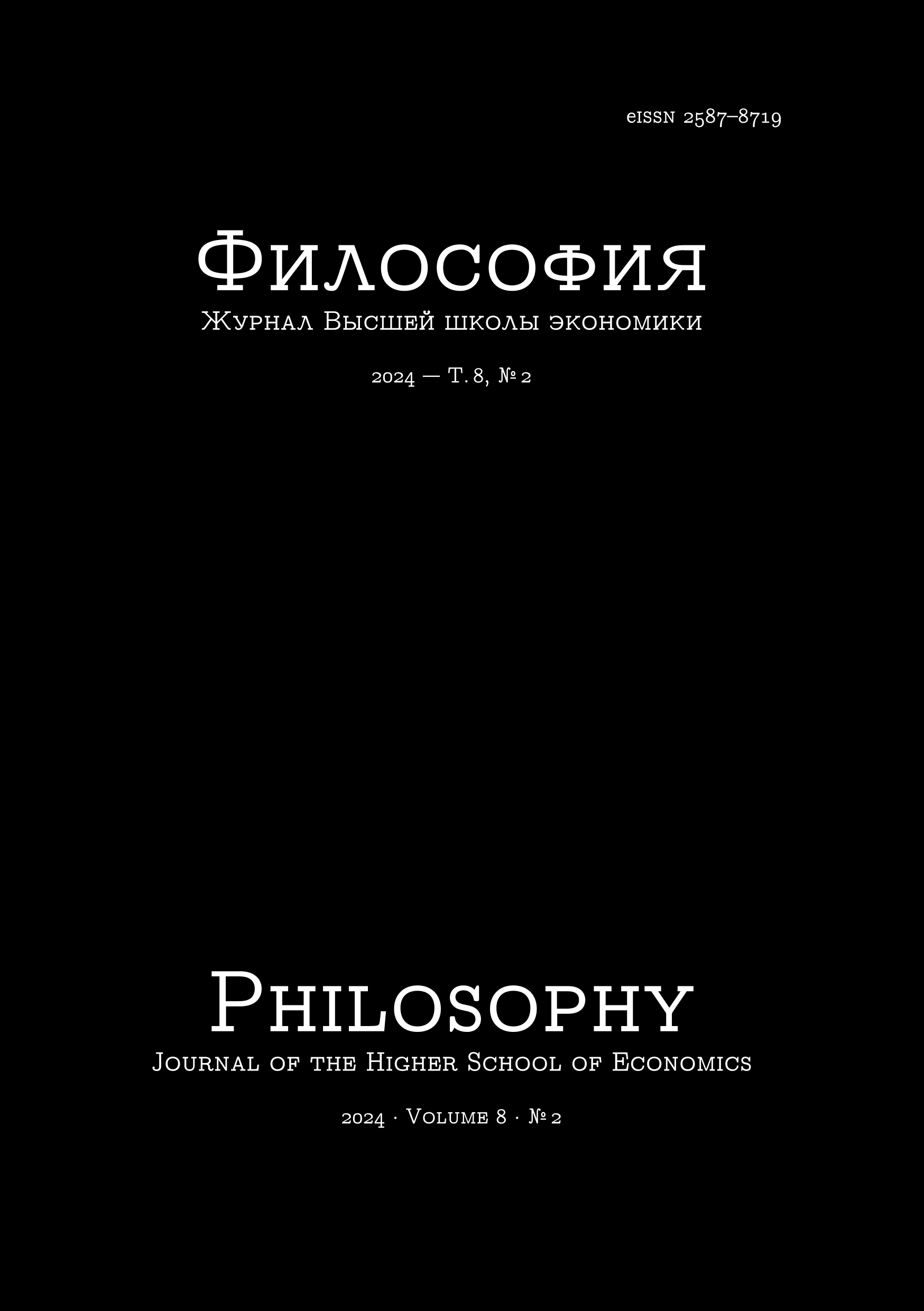Husserl, Heidegger and Lask
The Doctrine of Sense and Meaning
Abstract
This article examines some features of the phenomenological doctrine of meaning on the basis of Husserl's “Logical Investigations”, some of Heidegger's early writings, and Lask's “The Logic of Philosophy and the Doctrine of Categories”. The author believes that many ideas of the Neo-Kantian Lask's doctrine can be incorporated into the more general phenomenological method and may even reinforce certain phenomenological theses. The aim of this article is to show that Husserl, Heidegger and Lask develop similar intuitions in their writings that make the study of the phenomenon of meaning one of the central elements of their philosophical doctrines. For this purpose, the first part of the article reveals the content of the basic concepts that are most directly related to the phenomenological theory of meaning, and identifies the specificity of the meaning-bestowing and the intuitive acts. This section demonstrates that the meaning intention in phenomenology has a content of its own which cannot be exhausted either in perception and intuition or in “psychic experience”. The second part of the article discusses the phenomenological treatment of the concept of intentionality in Husserl and the early Heidegger. The phenomenological idea of the meaning intention is contrasted here with Brentano's interpretation of intentionality, which relies on the doctrine of mental phenomena. This section states that, in contrast to Brentano's doctrine, within the framework of the phenomenological doctrine of intentionality there is no “theory of representation” formed at all, but rather a philosophical “theory of meaning”, in which meaning is not reduced to mentality, but is understood exclusively as a linguistic phenomenon. In addition, this section shows the connection between the phenomenological theory of intentionality and the three-level semantic model, which assumes the possibility of constitution of a separate Sense level in language. In the final part of the article, the phenomenological approach is interpreted by comparing it to Lask's strategy of the “panarchy of the logos”. The last section reveals some of the ontological presuppositions of the doctrine of the world of phenomena through Lask's doctrine of the relation of the “world” of meaningful forms to the realm of the actual being.
Downloads
Copyright (c) 2024 Philosophy Journal of the Higher School of Economics

This work is licensed under a Creative Commons Attribution-NonCommercial 4.0 International License.






